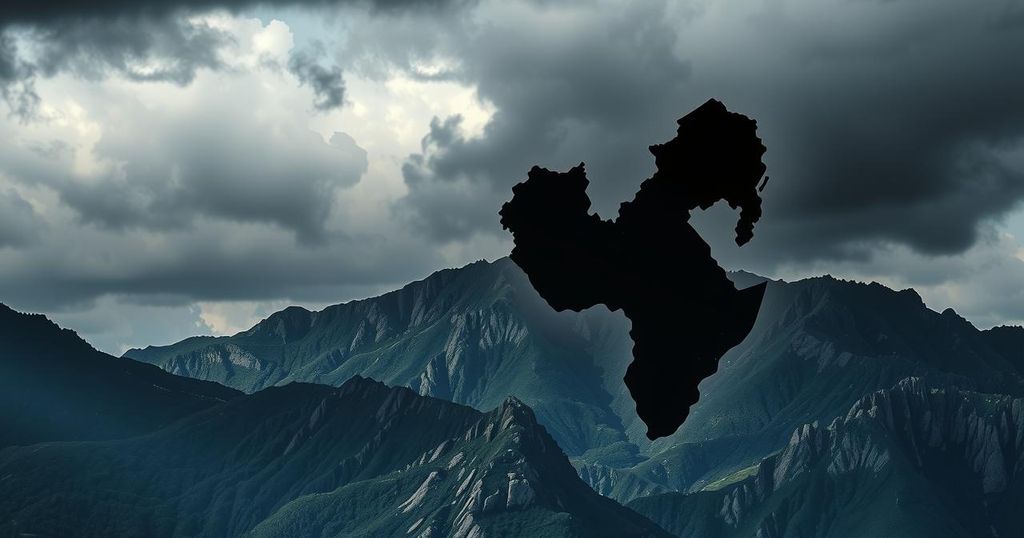Rwandan-backed M23 rebels have intensified their offensive in eastern DRC, capturing key areas such as Goma and South Kivu towns. A UN report states casualties have surpassed 2,900. Despite a declared ceasefire, fighting has resumed, prompting local calls for peace. Regional leaders and international bodies are urged to take decisive action to prevent further escalation of violence and ensure stability in the region.
M23 rebels, backed by Rwandan forces, have launched a renewed offensive in eastern Democratic Republic of Congo (DRC) just days before a scheduled summit between the Rwandan and Congolese presidents. The UN reported that the recent violence over the key city of Goma has caused significant casualties, estimating at least 2,900 deaths, which is a sharp increase from an earlier toll of 900. Breaking a unilaterally declared ceasefire, M23 fighters captured a mining town in South Kivu, advancing toward Bukavu.
Intense fighting erupted early Wednesday near Nyabibwe, located about 100km from Bukavu. Prior to the attacks, M23 declared a ceasefire, stating they did not intend to control Bukavu or other areas. However, Congolese government spokesman Patrick Muyaya criticized this move as a deceptive tactic. There have been numerous ceasefires in the past three years, all of which were ultimately disregarded.
In response to the escalating violence, both the M23 and Congolese forces are reportedly reinforcing their positions in the region. The capture of Goma marked a significant increase in conflict, affecting a region rich in minerals. A UN peacekeeping official noted that the current death toll in Goma could potentially rise, following the recovery of 2,000 bodies from streets and 900 remaining in local morgues.
As fear grows among Bukavu’s one million residents about becoming the next target, local citizens came together for a prayer service for peace, expressing their exhaustion over the continuous violence. Congolese President Félix Tshisekedi and Rwandan President Paul Kagame are anticipated to discuss this crisis during an eight-country summit in Tanzania. Concurrently, the UN Human Rights Council is planning a special session at the request of Kinshasa.
The situation has drawn the attention of regional bodies and the international community, with calls for effective diplomatic resolutions mounting. The DRC’s Foreign Minister highlighted frustrations over the lack of action from global powers, stating, “We see a lot of declarations but we don’t see actions.” Burdened by the potential for violence to spill across borders, neighboring nations are enhancing their military readiness, according to various reports.
A UN expert previously indicated Rwanda’s military presence in DRC, estimating up to 4,000 troops were involved, while Kigali maintains strategic control over the M23. Rich in essential minerals like coltan and gold, the eastern DRC remains a pivotal area of interest. Rwanda denies its military involvement, instead accusing the DRC of harboring the FDLR, a group with roots in the 1994 Rwandan genocide.
The ongoing conflict involving the M23 armed group and the Congolese army has roots in decades of instability in the eastern DRC, fueled by numerous armed factions vying for control over mineral-rich areas. The region’s valuable natural resources, especially coltan, have made it a focal point for both local and foreign interests, leading to complex geopolitical dynamics. Rwanda’s alleged military support for M23 complicates this conflict, as historical tensions between the countries intertwine with issues of ethnic violence remnants from the Rwandan genocide.
The M23’s renewed offensive amid a declared ceasefire highlights the fragile situation in the DRC, further exacerbated by the involvement of Rwandan forces and the grave humanitarian consequences of the recent fighting. The substantial rise in death toll in Goma calls for urgent international intervention, yet the response remains primarily verbal without practical outcomes. As tensions escalate, the potential for wider regional conflict looms, prompting neighboring nations to strengthen their defenses in anticipation of spillover violence.
Original Source: www.theguardian.com






